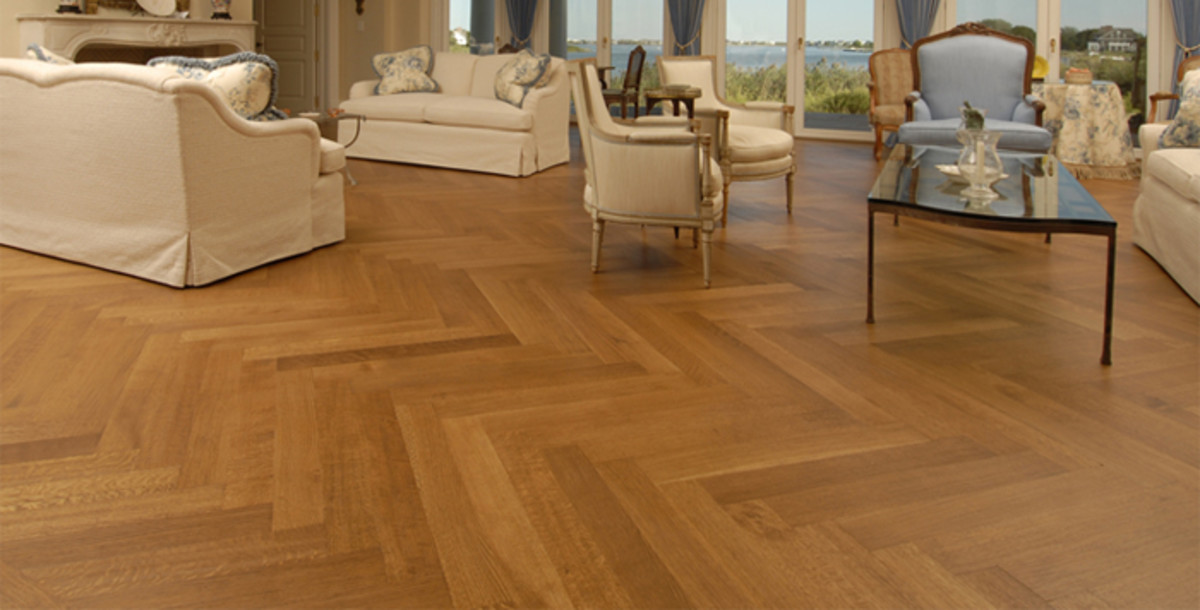Are Hardwood Floors Environment Friendly?
Are Hardwood Floors Eco-friendly?
Considering how hardwood floors have such an organic look and feel to it, it is no wonder that so many people choose it over carpet or laminate. But, given the environmental movement today and the effect that deforestation has had on the global community, once who is eco-conscious has to ask, does installing hardwood flooring in your home help or hurt the enviroment? Well, to answer this question, it really depends on who and where you buy your floors from.
Are hardwood companies giving the "true" information when it comes to managing forests? Well, it depends on who you ask. Some will tell you that bamboo flooring is the most eco-sound because it is easily harvested and the maturation process takes a few years, not decades as it does with other timber. But the bamboo industry is largely unregulated as compared to the hard wood industry making all sorts of deceptive practices within this industry as well as unethical things that harvesting the products do to the communities (which are often some of the poorest in the world) that surrounds it.
Is Deforestation an issue when it comes to Homes with Hardwood floors?
- Anderson Wood Flooring
- Appalacian Hardwood Floors
- Columbia Flooring Products
- Mannington Wood Floors
These types of companies are considered to be top of the line products and therefore also have a top of line price when it comes to flooring. That said, if you are concerned about sustainability of the forests and don't want to be part of the problem, then choosing a flooring company that agrees to be regulated and managed by organization watchdog groups that are green could quite possibly be the best solution for you.
In addition to the hardwood forestry fund, companies can also join the Forest Stewardship Council which gives an environmental certificate for companies that are willing to comply with rigid eco-friendly rules and regulations.
Aren't Bamboo Floors supposed to be the most eco-friendly hardwood out there?
There has been a lot of discussion about bamboo and it has been the poster child of the green movement in regards to hardwood flooring. But is bamboo as environmentally friendly as it claims? Here is the skinny on bamboo....
Bamboo isn't really a hardwood but is in the grass family. The upside or green view of bamboo is that because it is a grass, the maturation process from seedling to harvesting is much less....usually around 4-5 years. Compare this to red oak which could take decades until it reaches the point of maturation and you can see that this and this alone would be reason enough to think it is more eco-friendly.
Bamboo also doesn't require to be replanted and replenishes itself without needing to be re-seeded. Once again, this is a pro to choosing bamboo over traditional hardwood. Another plus is that bamboo requires virtually no pesticides to grow. That said, bamboo flooring (as well as some hardwood flooring) may use formaldehyde binders as adhesives when constructing the wood.
As Bamboo gets more popular, the less "good" it is for the environment
The biggest problem with bamboo is that as it has become the trendy, popular product for flooring land that was otherwise set aside for forests is now being clear cut to provide areas for it to be harvested. This effect has a negative impact on the environment. Worse still, because the industry is largely unregulated, chemical fertilizers are used to increase the overall yield in each bamboo farm. After all, the corporations behind the harvesting of bamboo for wood floors are in it for the money, not the enviroment.
While it is a sustainable resource, bamboo can't be locally sourced and is mainly harvested in high humid climates overseas. This means that the transportation via ships actually contribute to the overall pollution of the world (ships are one of the biggest polluters in the world).
Smith and Fong Plyboo is the only bamboo company that has made the pledge to be eco-friendly by joining the FSC
From a community perspective, unlike the hardwood industry, the bamboo industry doesn't need a fair trade certification. What this means is that in many cases, the communities responsible for the products don't recieve the benefit of having it in their community. Because of this, most of the bamboo companies operate in the poorest locales of the world.
With the exception of Smith and Fong Plyboo, there is not a single bamboo company that has been willing to be managed or regulated in regards to improving or sustaining the enviroment.
Looking for hardwood flooring that is also friendly for the environment? Here are some tips-
- Research the company that you are going to buy from and find companies that are more locally centralized versus hardwood that is harvested around the world to reduce the effects of shipping it from there to your area.
- Is the hardwood company a part of any watchdog groups like the FSC or forestry fund?
- If you are buying engineered hardwood, ask about the binders in the plies of wood. Are they toxic or not eco-friendly?
- Does the company have a fair trade certification?






